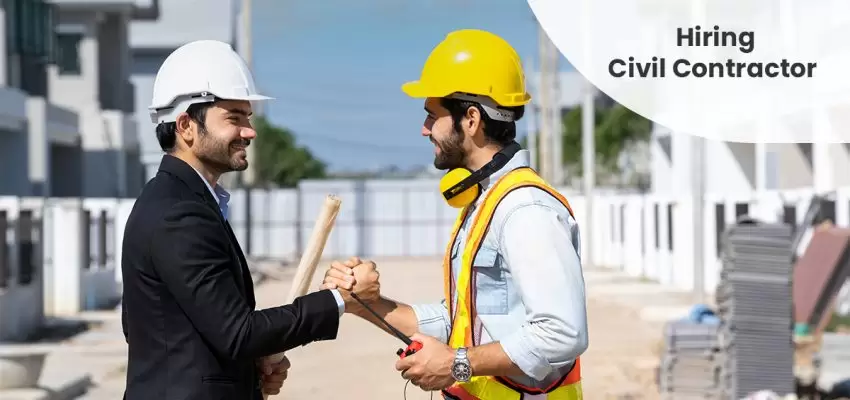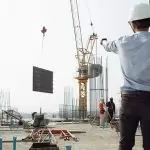Hiring a reliable and experienced civil contractor is crucial for successfully executing any construction project. With India’s booming infrastructure industry, the demand for good civil contractors has increased substantially. However, the contractor selection process can be confusing for those new to the construction sector. This comprehensive guide will simplify the process and help you find the right civil contractor in India for your project.
Post your Requirement
The Roles and Responsibilities of Civil Contractors |
|
Project Planning |
| – Create a project plan with timelines and budget allocations |
| – Determine necessary construction equipment and materials, and procure them |
| – Develop strategies to mitigate potential risks and anticipate changes |
|
Project Management |
| – Ensure that the team has the required skills and expertise |
| – Coordinate payroll for employees and handle subcontractor payments |
|
Project Tracking |
| – Monitor progress and pace of tasks |
| – Manage quality control and employ cost-effective construction methods |
| – Maintain a consistent supply of materials and schedule investments in advance |
| – Ensure safety and security at the construction site |
|
Legal Compliance |
| – Obtain necessary permits and complete required paperwork |
| – Ensure compliance with legal regulations throughout the construction process |
|
Safety and Security |
| – Implement safety protocols and procedures to prevent accidents |
| – Oversee the proper use of equipment and machinery |
| – Ensure the overall safety and security of the construction site |
|
McCoy Mart Services |
| – Access to a wide network of civil contractors |
| – Browse ratings and reviews to make informed decisions |
| – Receive personalized assistance to find the right contractor for your project |
| – Obtain multiple quotes to compare and choose the best option |
Process of Hiring a Civil Contractor in India
- Define the Project Scope and Requirements: The first step is defining your project’s scope and technical requirements as specifically as possible. Determine aspects like the type of construction, approximate timeline, required materials, projected budget, etc. Having clarity on project deliverables will help communicate expectations clearly to contractors.
- Research and Make a List of Prospective Contractors: Once project goals are established, research contractors in your local area who have relevant experience. Check sites like IndiaMart to find vendors. Seek referrals from business connections who have recently hired contractors. Make a list of contractors who potentially meet your criteria.
- Verify Licenses, Certifications and Experience: Screen your list of contractor candidates to ensure they have valid registrations, licenses, and credentials. Check details like the year of company establishment, types of past projects, and reviews from previous clients. Select contractors with substantial proven experience in similar construction projects to yours.
- Assess Financial Health: Examine the financial documents of shortlisted contractors to determine their financial health and stability. Check details like their annual turnover, bank statements, credit records, company assets/equipment ownership records, and tax registrations. Financially robust contractors who have been in business for a long are often the most reliable.
- Evaluate Capabilities and Resources: Gauge each contractor’s in-house capabilities with regard to manpower, equipment, and machinery ownership. These determine if they can execute your project smoothly or will need to subcontract externally. Opt for contractors with sufficient technical teams and resources at their disposal.
- Interaction Sessions and Quote Analysis: Conduct in-person meetings with your selected few contractors. Share your project plan and specifications and clarify doubts. Obtain price quotations from them based on projected costs. Compare quotes in detail in terms of total charges, material/labor costs, and timeline commitments.
- Background Checks and Reference Checks: Perform background verification checks of credentials and customer references submitted by contractors in their proposals. Personally contact past clients to gain insight into aspects like work quality, adherence to timelines, responsiveness, and post-project support delivered by the contractor.
- Final Evaluation and Selection: Finally, evaluate all details gathered from research, interactions, inspections, and reference checks. Rate the contractors on parameters like experience, capabilities, quality standards, costs, and reliability. Compare your evaluations to select the contractor best positioned to fulfill your project requirements.
Carefully review and negotiate any aspects of the final contract like payment schedules, work guarantees, insurance, dispute resolution, etc before formally finalizing your chosen contractor. Also, register the agreement as per regulatory requirements. If needed, consult real estate lawyers to ensure contractual safeguards.
Conclusion
Civil contractors are like the bosses of building things in India. They’re good at what they do, and they work on all kinds of projects, from making roads to building houses. Some of the best civil contractors can be found all over India, in places like Mumbai, Hyderabad, and Kolkata. These contractors know how to plan everything just right and make sure it all goes smoothly. They’re in charge of ensuring everyone on the construction site knows what they’re doing and that everything gets done on time. Safety is a big deal for them too. They make sure everyone stays safe while they’re working. These top-notch civil contractors are also smart about using new technology and ways of building to make things better and more efficient. Without them, it would be really hard to build all the important stuff we need in our cities and towns. So, we’re lucky to have them around, making sure everything gets built the right way. Hiring the right civil contractor lays a strong foundation for project success. Evaluate candidates thoroughly across all parameters instead of choosing contractors merely on cost considerations. Invest time upfront for rigorous research and comparisons. This helps avoid project delays, quality issues, or legal complications later on. Adapt the best practices outlined here for your specific project needs for a smooth construction process.























Post A Comment